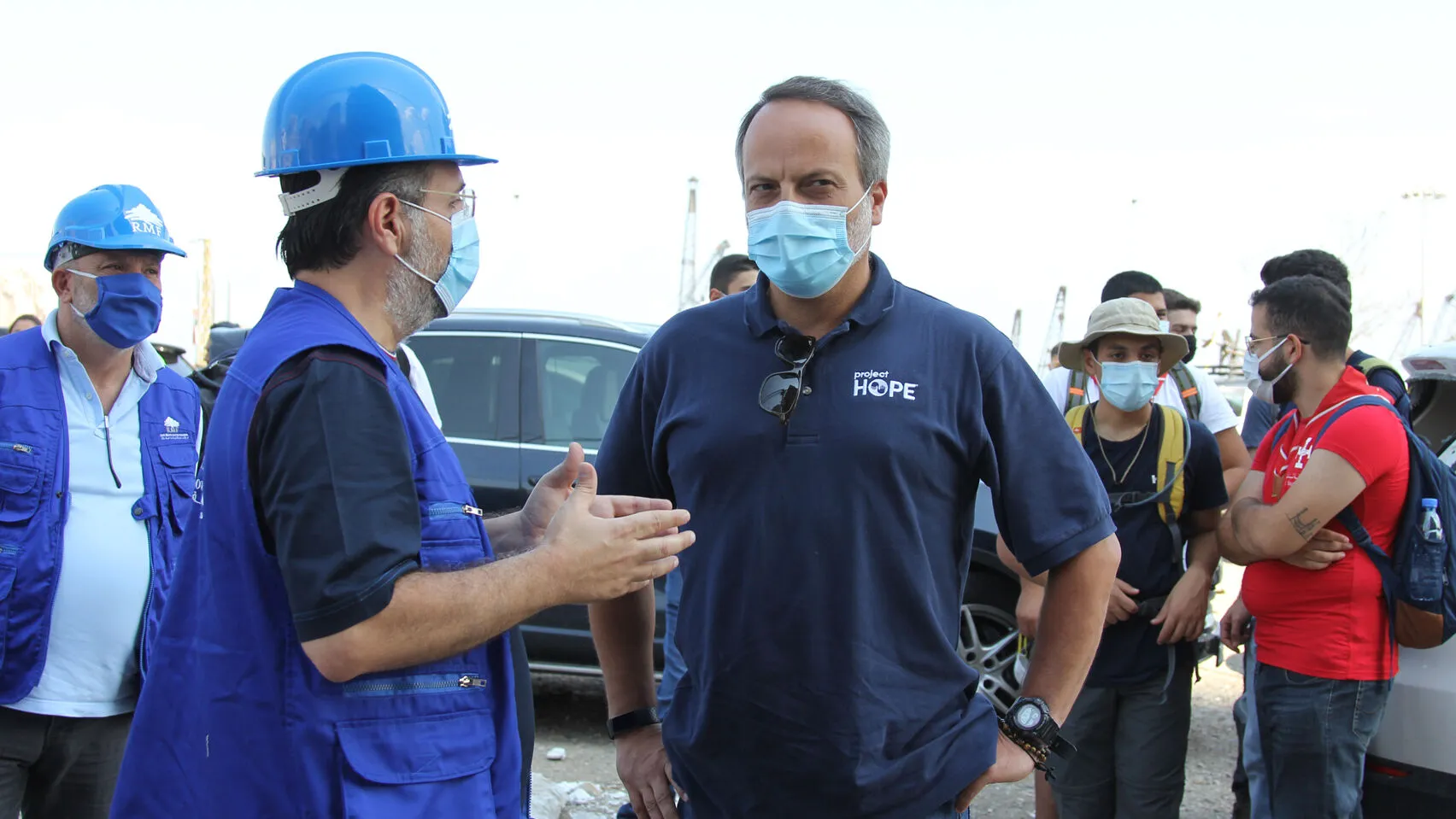COVID-19 Will Undo Decades of Global Health Progress. But Not For Why You Think.
COVID-19 revealed how unprepared the world was for a pandemic. But it also revealed something deeper: the inequities that exist within global health.

There’s no immediate way to measure the lasting consequences COVID-19 will have on the world’s health systems. But by every indication, the damage will be substantial — especially in developing countries.
While the virus’ dangers are well known, what’s harder to detect are its ripple effects: Expectant mothers not going to the doctor for prenatal visits out of fear of getting sick. People with noncommunicable diseases opting out of routine checkups. Infectious diseases going untested and untraced.
Decades of work and billions of dollars of investment in global health could be undone. But it won’t be just because of COVID-19.
These are the hard-fought advances we stand to lose in developing countries. Decades of work and billions of dollars of investment in global health could be undone. A single moment like the recent explosion in Beirut can trigger wide community spread that offsets months of grueling work by health workers.
But it won’t be just because of COVID-19. It will be because of what COVID-19 revealed: the systemic inequities within global health that remain unsolved.
The same health systems in West Africa that were crippled by Ebola in 2014 are just as vulnerable to this challenge six years later — not because of their ability, but because we’ve created a system that’s invested in treating the symptoms instead of the cause, and providing Band-Aids instead of building foundations.
During the 2014–16 Ebola outbreak in West Africa, no one was more vulnerable to the disease than doctors and nurses in places like Sierra Leone, Liberia, and Guinea. Why? Because there were too few doctors, they weren’t trained to deal with hemorrhagic fevers, and they lacked the personal protective equipment they needed. The reasons for those problems go much deeper and carry through to today — we see the same inequality when developing nations are outbid for urgent supplies of PPE by the U.S. and European Union. The 50,000 masks they need are just as vital as an order of 50 million, but they’re almost impossible to get.
As deadly as COVID-19 is, the international community cannot afford to invest solely in responding to its spread. Instead, we must invest in strengthening local health care systems so they can fight it, and so they have the staff capacity to preserve vital health gains they’ve won in their communities. Training staff on new techniques, investing in new infrastructure, and supporting local NGOs and first responders to respond to disasters — like the recent explosion in Beirut — will lay the foundation for a safer and healthier future.
We must invest in strengthening local health care systems so they can fight COVID-19 and so they have the staff capacity to preserve vital health gains they’ve won in their communities.
Project HOPE has seen firsthand the impact these sorts of changes can have. In response to the pandemic, we partnered with experts from Brown University to provide virtual COVID-19 trainings to health workers around the world. To date, thousands of Master Trainers around the world have completed the training and passed it on to over 83,000 health workers in their communities. In places like Nigeria, Malawi, Kosovo, Bangladesh, and Nepal, these trainings are preparing frontline doctors and nurses to recognize and treat COVID-19 at a fraction of the cost it would have taken to go ourselves.
This scale of training would have never been possible in person, and because the solution is now locally owned, its effects will last much longer. Now, we’re exploring a similar training platform to train nurses to care for sick and low-birthweight babies in sub-Saharan Africa.
This is the sort of approach it will take to regain the losses we will soon feel: a willingness to think creatively, utilize technology, and invest in local capacity — not as a last resort, but as a priority. Yes, we must respond to COVID-19 and do whatever we can to save lives. But we must do it in a way that positions the world’s health systems to endure the challenges yet to come.
Rabih Torbay is President and CEO of Project HOPE.







